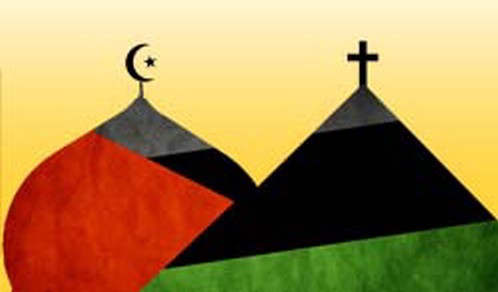In December 2018 a group of 1707, Christians gathered for a farewell reception in Jos, my birth city and the capital of Plateau State. They were pilgrims, travelling to Jerusalem to renew, or deepen their faiths, to become better Christians and, hopefully, make it to heaven, by God’s Grace. At this reception, Governor Simon Lalong, who had come to bid them farewell, made a stunning revelation. Of all the pilgrims, only seven had paid their own fares for the trip. The other 1,700 were going on the government’s bill. The state government was sponsoring 1,200 of these. The various local governments in the state were bankrolling the other 500.
That state government’s largesse is not exclusive. It sponsored 630 of the 1,195 Muslim pilgrims from the state who went for Hajj in March of 2019. What is astonishing about these figures is the money. That year alone, the Plateau State government expended some N2 billion to send Muslims and Christians on pilgrimage. For a government so concerned with the faith of its people, it is hard to see why governments in Nigeria, if they were rich philanthropists, won’t make it to heaven.
- Ganduje’s dangerous proposition is a recipe for disintegration
- No ethnic group should lord it over others — Gbajabiamila
Therein lies the rub. The government is not a philanthropist. It is a government whose principal responsibility, it must be said plainly, is not to secure tickets to heaven for its citizens, but to deliver good governance. To ensure that the lives of its citizens are improved upon daily, that roads are decent, health facilities are available, that women don’t needlessly die from birthing and the children they bear aren’t killed by preventable diseases that no longer kill children elsewhere in the world. As someone who is very familiar with Jos, where I grew up, schooled and started my journalism career, I can tell you that is not the case. Some roads in the capital are at the worst state they have ever been. In the villages, I don’t imagine the situation is any better. Yet, there were jubilations when Governor Lalong reversed the policy that the state government would no longer sponsor pilgrims.
In governance terms, one can only imagine what improvements in the state’s infrastructure N2 billion could have made that year. What improvement that could have made in the lives of the people in the state.
From Sokoto to Cross River, Adamawa and Kwara, the story is not much different. The governments has expended billions in intangible investment that has no returns other than to placate certain groups, compensate, reward friends, relatives of government officials or their families. In some cases, their lovers and concubines.
Recently, the Ekiti State government declared its decision to no longer sponsor pilgrims and asked those interested in performing such rites to do so through private savings.
Of course, those who stand to benefit from this programme are displeased. The pragmatists on the other hand have been hailing the government’s position. The same scenario had played out after the federal government decided to end its own sponsorship of pilgrims in 2016.
The mixed reactions are understandable. Nigeria is a country of very religious people. Of course, being religious and being a decent, upright person do not always translate into the same thing. If one would go by the profession of faith in the country, one would not expect the kinds of felony and criminality being perpetrated by people in this country, and often in the name of God. A prayerful country. A sinful country. But I digress.
Various states in Nigeria have continued to dish out on this, spending billions to sponsor those they favour on these trips.
In 2010 alone, the federal government plunged N14 billion to sponsor such trips of spiritual enrichment. The state governments each chipped in their own quota.
This was mostly at a time when these governments grumbled about not having the money to pay public servants’ salaries. In fact, some of the worst states when it comes to paying salaries happen to be the ones sponsoring the most pilgrims. In most instances, they are the least developed.
Religion is very important to Nigerians and it is wise that the government recognises that. After all, a good government lets it people revel in their opium every once in a while. But this should be done at a time when the essentials have been covered. If the hospitals worked and the roads are good and power supply is cured of its perpetual epilepsy, if school children don’t have to sit on bare floors in unroofed classes, or in the shades of mango trees for an education and insecurity is no longer a pandemic, and the economy is actually working, then the government may indulge in such pursuits that help keep its people happy. Other countries have various welfare packages for their citizens. This sadly is not the case.
Many bad government officials have got away with impoverishing their people but somehow retain goodwill for building places of worship. Or making a show of attending congregational prayers. Or declaring one faith the enemy of the other. Or making a show of being godly.
As much as Nigeria is considered a country of mostly religious people, it should also be considered for what it really is: a country impoverished by maladministration, of a suffering people burdened by the weight of degraded or non-existent infrastructure and amenities. Insecurity is so rampant that the simple act of going to a place of worship has caused many people their lives. For nine months, university lecturers were on a strike. The government insisted it had no money to meet their demands. And with COVID-19 wreaking havoc on the economy, it would be prudent for the government and the people to get their priorities straight.

 Join Daily Trust WhatsApp Community For Quick Access To News and Happenings Around You.
Join Daily Trust WhatsApp Community For Quick Access To News and Happenings Around You.

